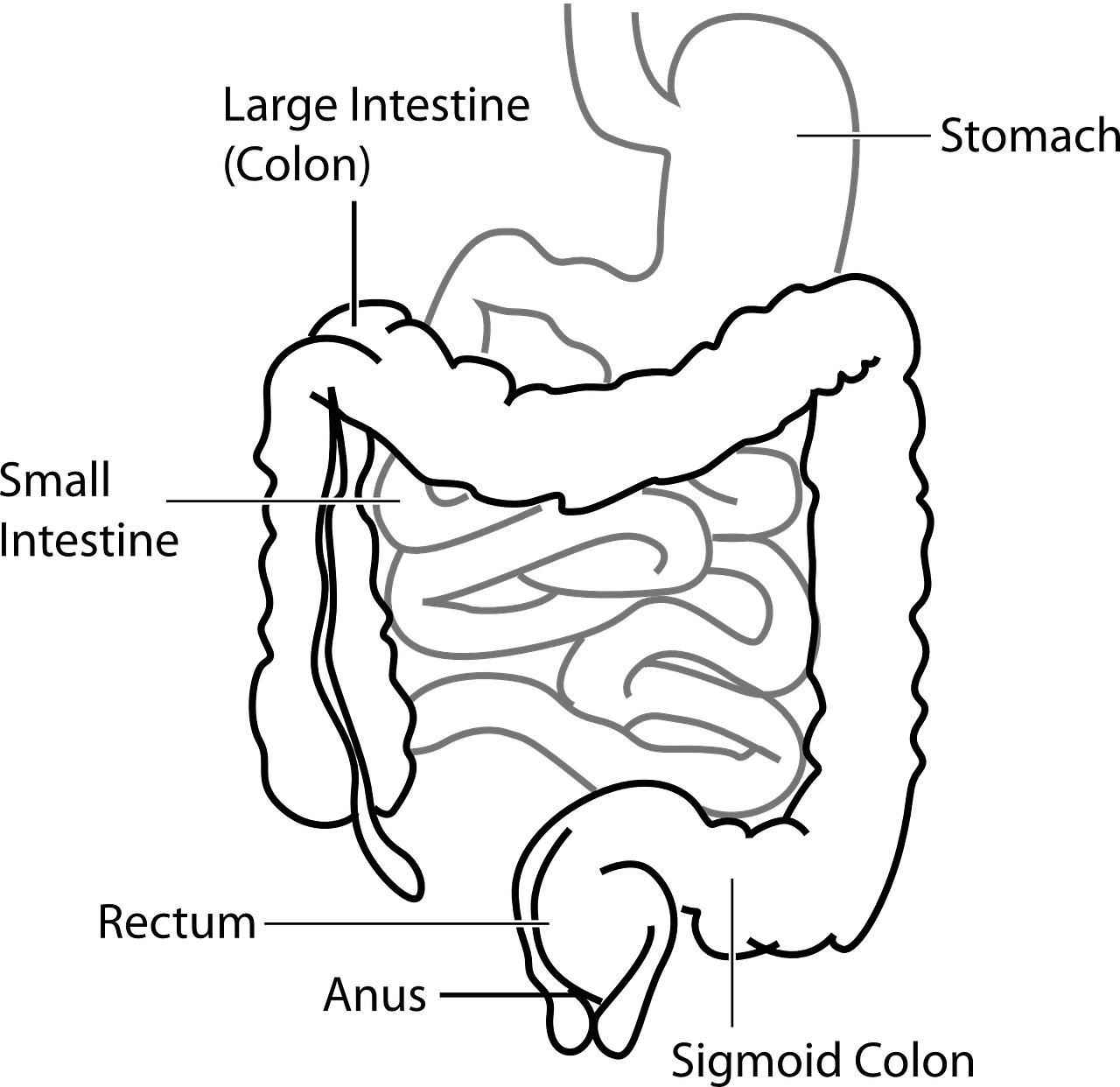Americans commonly suffer from digestive system problems that lower quality of life and can even be debilitating. But far too often treatment is medication-focused, and it only alleviate symptoms rather than
improve digestion. Most digestive system disorders require not only medication, but also an integrative or
holistic medical approach. With integrative medicine, doctors seek to heal the source of the
digestive system problems using the least invasive most effective treatments, utilizing both conventional and alternative diagnoses and treatments. Lets first look at the digestive tract disorders that arise most often.
Common Digestive System Problems
The list of digestive tract disorders includes:
 Irritable Bowel Syndrome
Irritable Bowel Syndrome—Marked by recurring abdominal pain, constipation or diarrhea, and excessive gas. The cause of this syndrome isn’t well understood and thought to be partially mediated by seratonin in the digestive tract.
Crohn's— The immune system attacks the inner lining in the digestive tract—anywhere from the mouth to the anus. Symptoms are severe diarrhea, dehydration, pain, and fatigue.
Celiacs Disease—This disease, which causes the digestive function to deteriorate, affects susceptible people when they eat gluten.
Gastritis—This digestive system problem is caused by damage to the gastric tissue in the stomach and has many possible causes.
Gastroesophogeal Reflux Disease (GERD) —Much more than simple heartburn, this disease is persistent and can lead to a predisposition for cancer. (Acid reflux—which occurs less than GERD— isn’t a disease and isn’t associated with cancer.)
Ulcerative Colitis—This inflammatory condition involving the mucosa of the colon and rectum. Symptoms include bleeding with bowel movements, diarrhea, and pain. Anemia can occur with this condition, and there is increased risk of certain digestive related cancers.
Digestive system problems | Treatment options
Using an integrate approach, a holistic medical doctor will use a variety of proven treatments to improve your
digestive health such as:
- Probiotics—Live microorganisms (e.g., lactic acid bacteria, bifidobacteria) are administered to the patient to counteract pathogenic and toxin-producing bacteria. This treatment has been shown to be effective for IBS, Crohn's and Ulcerative Colitis (Probiotics are commonly in fermented food such as yogurt.).
- Digestive Enzymes—The digestive tract supplies these enzymes, but supplements can help break down the foods so the body can absorb them. This can improve digestion in those with GERD, IBS, Crohn's, and others.
- Acupuncture for digestion can improve digestion by relaxing the nervous system and toifying the Spleen qi.
- Chinese herbal medicine can help by tonifying the Spleen qi and or dispersing the Liver qi.
- Diet Changes—An integrative doctor will guide you toward the best diets and food choices for your digestive system problems. Not all digestive tract disorders respond to all diet interventions. It is important to understand the food triggers and make the appropriate diet changes. Of all the ways to improve digestion dietary changes are probably the most effective, yet most misunderstood and overlooked. Make sure your digestive doctor has a good understanding of the impact of diet.
- Stress management management
Key Points for Digestive System Problems and Solutions
Treating digestive system disorders is about more than treating the symptoms. Effective treatment of any disorder requires the application of a wide varied of medical technologies and treatments. Integrative medicine seeks to utilize the least invasive and most effective of these. Our holistic physicians can help you find the solutions to your digestive system problems.
If you would like more information on solutions for digestive system problems or other natural medicine treatments, click on the link below for a free consultation.

 "My weight was getting so out of control. I started their weigh loss diet program and lost 32 lbs! I have been able to reduce my blood pressure medicine, fit back in my clothes, have tons more energy... Now I am back to eating and my desire for foods has changes drastically. Saved my life!!!
"My weight was getting so out of control. I started their weigh loss diet program and lost 32 lbs! I have been able to reduce my blood pressure medicine, fit back in my clothes, have tons more energy... Now I am back to eating and my desire for foods has changes drastically. Saved my life!!!
 "Dr. Cline and Dr. Terranella have been amazing! For the first time we found doctors that actually listen. They care about how your feeling and try everything they can to get you back to a normal state. I am in love with these guys! If you want amazing care, see these guys."
"Dr. Cline and Dr. Terranella have been amazing! For the first time we found doctors that actually listen. They care about how your feeling and try everything they can to get you back to a normal state. I am in love with these guys! If you want amazing care, see these guys."





 Irritable Bowel Syndrome—Marked by recurring abdominal pain, constipation or diarrhea, and excessive gas. The cause of this syndrome isn’t well understood and thought to be partially mediated by seratonin in the digestive tract.
Irritable Bowel Syndrome—Marked by recurring abdominal pain, constipation or diarrhea, and excessive gas. The cause of this syndrome isn’t well understood and thought to be partially mediated by seratonin in the digestive tract.










